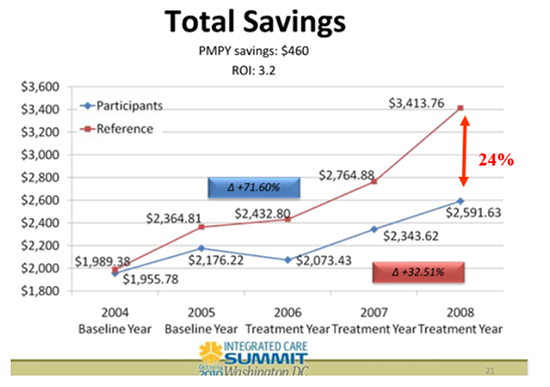 (6) Why doesn’t anyone on the Koop Committee notice any of these “unfortunate mislabelings” until several years after we point out that they are in plain view?
(7) Why is it that every time HFC admits lying, the penalty that you assess -- as president of the Koop Award Committee -- is to anoint their programs as “best practices” in health promotion? (See Eastman Chemical and Nebraska in the list below.) Doesn’t that send a signal that Dr. Koop might have objected to?
(8) Whenever HFC publishes lengthy press releases announcing that its customers received the “prestigious” Koop Award, it always forgets to mention that it sponsors the awards. With your post’s emphasis on “the spirit of full disclosure” and “transparency,” why haven’t you insisted HFC disclose that it finances the award (sort of like when Nero used to win the Olympics because he ran them)?
(9) Speaking of “best practices” and Koop Award winners, HFC’s admitted lies about saving the lives of 514 cancer victims in its award-winning Nebraska program are technically a violation of the state’s anti-fraud statute, because HFC accepted state money and then misrepresented outcomes. Which is it: Is HFC a best practice, or should it be prosecuted for fraud?
(10) RAND Corp.’s wellness guru Soeren Mattke, who also disputes wellness ROIs, has observed that every time one of the wellness industry’s unsupportable claims gets disproven, wellness defenders say they didn’t really mean it, and they really meant something else altogether. Isn’t this exactly what you are doing here, with the “mislabeled” slide, with your sudden epiphany about following USPSTF guidelines and respecting employee dignity and with your new position that ROI doesn’t matter any more, now that most ROI claims have been invalidated?
(11) Why are you still quoting Katherine Baicker’s five-year-old meta-analysis claiming 3.27-to-1 savings from wellness in (roughly) 16-year-old studies, even though you must be fully aware that she herself has repeatedly disowned it and now says: “There are very few studies that have reliable data on the costs and benefits”? We have offered to compliment wellness defenders for telling the truth in every instance in which they acknowledge all her backpedaling whenever they cite her study. We look forward to being able to compliment you on truthfulness when you admit this. This offer, if you accept it, is an improvement over our current Groundhog Day-type cycle where you cite her study, we point out that she’s walked it back four times, and you somehow never notice her recantations and then continue to cite the meta-analysis as though it’s beyond reproach.
To end on a positive note, while we see many differences between your words and your deeds, let us give you the benefit of the doubt and assume you mean what you say and not what you do. In that case, we invite you to join us in writing an open letter to Penn State, the Business Roundtable, Honeywell, Highmark and every other organization (including Vik Khanna’s wife’s employer) that forces employees to choose between forfeiting large sums of money and maintaining their dignity and privacy. We could collectively advise them to do exactly what you now say: Instead of playing doctor with “pry, poke, prod and punish” programs, we would encourage employers to adhere to USPSTF screening guidelines and frequencies and otherwise stay out of employees’ personal medical affairs unless they ask for help, because overdoctoring produces neither positive ROIs nor even healthier employers. And we need to emphasize that it’s OK if there is no ROI because ROI doesn’t matter.
As a gesture to mend fences, we will offer a 50% discount to all Koop Committee members for the Critical Outcomes Report Analysis course and certification, which is also recognized by the Validation Institute. This course will help your committee members learn how to avoid the embarrassing mistakes they consistently otherwise make and (assuming you institute conflict-of-interest rules as well to require disclosure of sponsorships) ensure that worthy candidates win your awards.
(6) Why doesn’t anyone on the Koop Committee notice any of these “unfortunate mislabelings” until several years after we point out that they are in plain view?
(7) Why is it that every time HFC admits lying, the penalty that you assess -- as president of the Koop Award Committee -- is to anoint their programs as “best practices” in health promotion? (See Eastman Chemical and Nebraska in the list below.) Doesn’t that send a signal that Dr. Koop might have objected to?
(8) Whenever HFC publishes lengthy press releases announcing that its customers received the “prestigious” Koop Award, it always forgets to mention that it sponsors the awards. With your post’s emphasis on “the spirit of full disclosure” and “transparency,” why haven’t you insisted HFC disclose that it finances the award (sort of like when Nero used to win the Olympics because he ran them)?
(9) Speaking of “best practices” and Koop Award winners, HFC’s admitted lies about saving the lives of 514 cancer victims in its award-winning Nebraska program are technically a violation of the state’s anti-fraud statute, because HFC accepted state money and then misrepresented outcomes. Which is it: Is HFC a best practice, or should it be prosecuted for fraud?
(10) RAND Corp.’s wellness guru Soeren Mattke, who also disputes wellness ROIs, has observed that every time one of the wellness industry’s unsupportable claims gets disproven, wellness defenders say they didn’t really mean it, and they really meant something else altogether. Isn’t this exactly what you are doing here, with the “mislabeled” slide, with your sudden epiphany about following USPSTF guidelines and respecting employee dignity and with your new position that ROI doesn’t matter any more, now that most ROI claims have been invalidated?
(11) Why are you still quoting Katherine Baicker’s five-year-old meta-analysis claiming 3.27-to-1 savings from wellness in (roughly) 16-year-old studies, even though you must be fully aware that she herself has repeatedly disowned it and now says: “There are very few studies that have reliable data on the costs and benefits”? We have offered to compliment wellness defenders for telling the truth in every instance in which they acknowledge all her backpedaling whenever they cite her study. We look forward to being able to compliment you on truthfulness when you admit this. This offer, if you accept it, is an improvement over our current Groundhog Day-type cycle where you cite her study, we point out that she’s walked it back four times, and you somehow never notice her recantations and then continue to cite the meta-analysis as though it’s beyond reproach.
To end on a positive note, while we see many differences between your words and your deeds, let us give you the benefit of the doubt and assume you mean what you say and not what you do. In that case, we invite you to join us in writing an open letter to Penn State, the Business Roundtable, Honeywell, Highmark and every other organization (including Vik Khanna’s wife’s employer) that forces employees to choose between forfeiting large sums of money and maintaining their dignity and privacy. We could collectively advise them to do exactly what you now say: Instead of playing doctor with “pry, poke, prod and punish” programs, we would encourage employers to adhere to USPSTF screening guidelines and frequencies and otherwise stay out of employees’ personal medical affairs unless they ask for help, because overdoctoring produces neither positive ROIs nor even healthier employers. And we need to emphasize that it’s OK if there is no ROI because ROI doesn’t matter.
As a gesture to mend fences, we will offer a 50% discount to all Koop Committee members for the Critical Outcomes Report Analysis course and certification, which is also recognized by the Validation Institute. This course will help your committee members learn how to avoid the embarrassing mistakes they consistently otherwise make and (assuming you institute conflict-of-interest rules as well to require disclosure of sponsorships) ensure that worthy candidates win your awards.11 Questions for Ron Goetzel on Wellness
The authors welcome his recent, pro-wellness posting but question his data, including the slide most often used to demonstrate wellness' value.

 (6) Why doesn’t anyone on the Koop Committee notice any of these “unfortunate mislabelings” until several years after we point out that they are in plain view?
(7) Why is it that every time HFC admits lying, the penalty that you assess -- as president of the Koop Award Committee -- is to anoint their programs as “best practices” in health promotion? (See Eastman Chemical and Nebraska in the list below.) Doesn’t that send a signal that Dr. Koop might have objected to?
(8) Whenever HFC publishes lengthy press releases announcing that its customers received the “prestigious” Koop Award, it always forgets to mention that it sponsors the awards. With your post’s emphasis on “the spirit of full disclosure” and “transparency,” why haven’t you insisted HFC disclose that it finances the award (sort of like when Nero used to win the Olympics because he ran them)?
(9) Speaking of “best practices” and Koop Award winners, HFC’s admitted lies about saving the lives of 514 cancer victims in its award-winning Nebraska program are technically a violation of the state’s anti-fraud statute, because HFC accepted state money and then misrepresented outcomes. Which is it: Is HFC a best practice, or should it be prosecuted for fraud?
(10) RAND Corp.’s wellness guru Soeren Mattke, who also disputes wellness ROIs, has observed that every time one of the wellness industry’s unsupportable claims gets disproven, wellness defenders say they didn’t really mean it, and they really meant something else altogether. Isn’t this exactly what you are doing here, with the “mislabeled” slide, with your sudden epiphany about following USPSTF guidelines and respecting employee dignity and with your new position that ROI doesn’t matter any more, now that most ROI claims have been invalidated?
(11) Why are you still quoting Katherine Baicker’s five-year-old meta-analysis claiming 3.27-to-1 savings from wellness in (roughly) 16-year-old studies, even though you must be fully aware that she herself has repeatedly disowned it and now says: “There are very few studies that have reliable data on the costs and benefits”? We have offered to compliment wellness defenders for telling the truth in every instance in which they acknowledge all her backpedaling whenever they cite her study. We look forward to being able to compliment you on truthfulness when you admit this. This offer, if you accept it, is an improvement over our current Groundhog Day-type cycle where you cite her study, we point out that she’s walked it back four times, and you somehow never notice her recantations and then continue to cite the meta-analysis as though it’s beyond reproach.
To end on a positive note, while we see many differences between your words and your deeds, let us give you the benefit of the doubt and assume you mean what you say and not what you do. In that case, we invite you to join us in writing an open letter to Penn State, the Business Roundtable, Honeywell, Highmark and every other organization (including Vik Khanna’s wife’s employer) that forces employees to choose between forfeiting large sums of money and maintaining their dignity and privacy. We could collectively advise them to do exactly what you now say: Instead of playing doctor with “pry, poke, prod and punish” programs, we would encourage employers to adhere to USPSTF screening guidelines and frequencies and otherwise stay out of employees’ personal medical affairs unless they ask for help, because overdoctoring produces neither positive ROIs nor even healthier employers. And we need to emphasize that it’s OK if there is no ROI because ROI doesn’t matter.
As a gesture to mend fences, we will offer a 50% discount to all Koop Committee members for the Critical Outcomes Report Analysis course and certification, which is also recognized by the Validation Institute. This course will help your committee members learn how to avoid the embarrassing mistakes they consistently otherwise make and (assuming you institute conflict-of-interest rules as well to require disclosure of sponsorships) ensure that worthy candidates win your awards.
(6) Why doesn’t anyone on the Koop Committee notice any of these “unfortunate mislabelings” until several years after we point out that they are in plain view?
(7) Why is it that every time HFC admits lying, the penalty that you assess -- as president of the Koop Award Committee -- is to anoint their programs as “best practices” in health promotion? (See Eastman Chemical and Nebraska in the list below.) Doesn’t that send a signal that Dr. Koop might have objected to?
(8) Whenever HFC publishes lengthy press releases announcing that its customers received the “prestigious” Koop Award, it always forgets to mention that it sponsors the awards. With your post’s emphasis on “the spirit of full disclosure” and “transparency,” why haven’t you insisted HFC disclose that it finances the award (sort of like when Nero used to win the Olympics because he ran them)?
(9) Speaking of “best practices” and Koop Award winners, HFC’s admitted lies about saving the lives of 514 cancer victims in its award-winning Nebraska program are technically a violation of the state’s anti-fraud statute, because HFC accepted state money and then misrepresented outcomes. Which is it: Is HFC a best practice, or should it be prosecuted for fraud?
(10) RAND Corp.’s wellness guru Soeren Mattke, who also disputes wellness ROIs, has observed that every time one of the wellness industry’s unsupportable claims gets disproven, wellness defenders say they didn’t really mean it, and they really meant something else altogether. Isn’t this exactly what you are doing here, with the “mislabeled” slide, with your sudden epiphany about following USPSTF guidelines and respecting employee dignity and with your new position that ROI doesn’t matter any more, now that most ROI claims have been invalidated?
(11) Why are you still quoting Katherine Baicker’s five-year-old meta-analysis claiming 3.27-to-1 savings from wellness in (roughly) 16-year-old studies, even though you must be fully aware that she herself has repeatedly disowned it and now says: “There are very few studies that have reliable data on the costs and benefits”? We have offered to compliment wellness defenders for telling the truth in every instance in which they acknowledge all her backpedaling whenever they cite her study. We look forward to being able to compliment you on truthfulness when you admit this. This offer, if you accept it, is an improvement over our current Groundhog Day-type cycle where you cite her study, we point out that she’s walked it back four times, and you somehow never notice her recantations and then continue to cite the meta-analysis as though it’s beyond reproach.
To end on a positive note, while we see many differences between your words and your deeds, let us give you the benefit of the doubt and assume you mean what you say and not what you do. In that case, we invite you to join us in writing an open letter to Penn State, the Business Roundtable, Honeywell, Highmark and every other organization (including Vik Khanna’s wife’s employer) that forces employees to choose between forfeiting large sums of money and maintaining their dignity and privacy. We could collectively advise them to do exactly what you now say: Instead of playing doctor with “pry, poke, prod and punish” programs, we would encourage employers to adhere to USPSTF screening guidelines and frequencies and otherwise stay out of employees’ personal medical affairs unless they ask for help, because overdoctoring produces neither positive ROIs nor even healthier employers. And we need to emphasize that it’s OK if there is no ROI because ROI doesn’t matter.
As a gesture to mend fences, we will offer a 50% discount to all Koop Committee members for the Critical Outcomes Report Analysis course and certification, which is also recognized by the Validation Institute. This course will help your committee members learn how to avoid the embarrassing mistakes they consistently otherwise make and (assuming you institute conflict-of-interest rules as well to require disclosure of sponsorships) ensure that worthy candidates win your awards.







